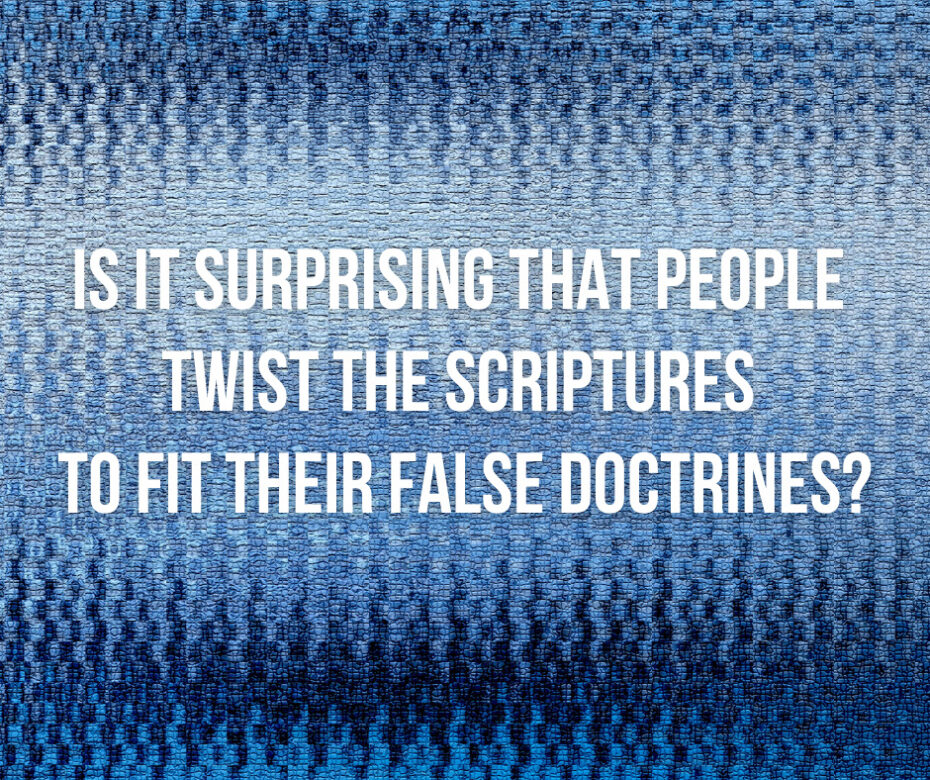D. R. asks this important question:
A couple we’ve known for many years recently admitted they are universalists. This came as quite a shock to us since they’ve been missionaries in Haiti for 30+ years with a Baptist organization.
I’ve looked up some of your articles addressing universalism (which addressed most of the Scriptures they quoted); however, I didn’t see anything regarding Phil 2:10.
I’d appreciate your thoughts on this Scripture in light of universalism.
Here is what Greg Sapaugh wrote about Phil 2:10 in our Grace NT Commentary: “The purpose of the exaltation of Christ is so that all creation may bow to Him and acknowledge Him as Lord. This adoration of Jesus will also result in glory for the Father.”
The fact that all will bow to Jesus does not mean that all will be born again. Compare Rev 20:15 and John 3:16-18. Only those in the book of life will escape the lake of fire.
Robert Lightner in The Bible Knowledge Commentary says, “The extent of Christ’s sovereign authority is delineated in the threefold phrase, in heaven and on earth and under the earth. No intelligent being—whether angels and saints in heaven; people living on the earth; or Satan, demons, and the unsaved in hell—in all of God’s universe will escape. All will bow either willingly or they will be made to do so” (p. 654).
Note this excellent comment by O’Brien in his commentary on Philippians:
Finally, it ought not to be assumed that the bending of the knee by all will be in glad acknowledgement of Jesus’ lordship. Since the following words of v. 10c, which explain the meaning of ‘every knee’, include both good and evil beings who acknowledge Jesus’ rule rather than voluntarily confess or praise him (see below), one ought to understand the bowing of the knee as an act of submission to one whose power they cannot resist. This suggestion fits the context of Is. 45 precisely, for there the assertion is made: ‘All who have raged against him will come to him and be put to shame’ (v. 24). It is also consistent with the use made of Is. 45:23 at Rom. 14:11 to endorse the idea that ‘we will all stand before God’s judgment seat’i (p. 243).
Why, you may ask, would anyone even think that all who confess Jesus as Lord will be saved from eternal condemnation?
If you cannot accept what the Bible teaches about eternal condemnation, then you will seek ways to elevate certain texts and ignore or work around other texts. Texts like Luke 16:19-31 or Rev 20:11-15 and many other texts clearly refer to the eternal condemnation of many humans (e.g., Isa 14:9-11; Matt 25:44-46; 2 Thess 2:10-12). But if you reject that doctrine because it does not make sense to you, then you work around those texts and look to see what texts you might find that will support your desired universalism.
A misinterpretation of Rom 10:9 can be combined with Phil 2:10 to give the appearance of a solid argument. Romans 10:9 says, “…if you confess with your mouth the Lord Jesus and believe in your heart that God has raised Him from the dead, you will be saved.” Well, if everyone will confess that Jesus is Lord, then doesn’t that mean that all will be saved?
No. No. No. Three reasons.
First, the salvation in Rom 10:9-10 is salvation from temporal wrath (Rom 1:18-32), not salvation from eternal condemnation. See this article by Dr. John Hart and this podcast by Shawn and me.
Second, Rom 10:9-10 is referring to what people do in this life, not after this life is over. People do not get a second chance to be born again after this life is over (Heb 9:27).
Third, the confession in Rom 10:9 refers not to saying the words Jesus is Lord, but to being part of the worshipping community that is calling upon the Lord Jesus each week in worship. Hodges writes, “this confession is explicitly connected by Paul to a supplication made to Jesus in prayer (vv 12-13). It is not simply an acknowledgement of His Lordship, but in fact an appeal to His Lordship for the needed deliverance from divine wrath” (Romans, p. 298). He adds, “Robert Jewett (p. 621) is no doubt correct to give us the rendering ‘Lord Jesus!’ which fits the Greek construction comfortably” (p. 298).
God has constructed the Bible in such a way that those who do not wish to believe it can twist it to confuse those who are not well grounded. For example, God could have given us a 100-page book that discusses the error of universalism. There could be books on the errors of Mormonism, Jehovah’s Witnesses, Islam, Hinduism, Buddhism, Catholicism, Orthodoxy, works salvation Protestantism, Lordship Salvation, etc. But He did not do that. He is a rewarder of those who diligently seek Him (Heb 11:6; Acts 17:11).
At the Judgment Seat of Christ every believer will bow and acknowledge the Lord Jesus. At the Great White Throne Judgment, so will every unbeliever. But eternal destiny is not determined by who bends the knee and confesses Jesus at those judgments. The basis of eternal destiny is faith in Christ (John 3:16) or the lack thereof (John 3:18; Rev 20:15).
Thanks, D. R. for a great question.
___________
i The believer will be judged at the Judgment Seat of Christ before the Millennium (2 Cor 5:9-10). The unbeliever will be judged a thousand years later at the Great White Throne Judgment (Rev 20:11-15). O’Brien seems to hold to the view, common in Evangelicalism, that there is but one judgment, which is typically called the final judgment.


